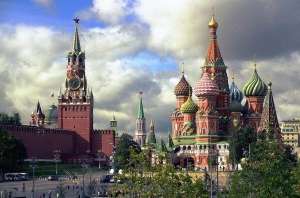• Interview with Sebastian Vlădescu, former minister of Finance
Reporter: How do you view the current economic situation of Romanian in the context of the difficulties in Europe?
Sebastian Vlădescu: The recently announced hike, which in actuality is a restoration of the wages of public sector workers can be done without any trouble, in two tranches (8% in mid-2012 and 7% at the end of the year), and it must be done because it is one of the few ways to stimulate consumption.
I've said this two months ago, when the idea was discussed for the first time.
Raising the wages is not a major problem, because the spending on wages in the public sector currently hovers around 7% of the GDP. Furthermore, we have the financial means to make these payments this year, as well as in 2013.
I also said two months ago that the Social Security contributions of the employers need to be cut.
All of these can not be done without an increase in the budget deficit, which in my opinion can be financed, as raising the wages would put the budget deficit somewhere around 2.5% of the GDP.
The restitution of the money which was taken away "illegally", according to the Constitutional Court, must be done because it is a ruling, and it needs to be abided by, even if it costs us by causing the budget deficit to increase by 0.2% of the budget deficit.
There are also other areas of concern and I am referring here to the recent tax amnesty, which in my opinion should never have taken place (ed. note: in the beginning of May, the Chamber of Deputies passed the draft law concerning the tax amnesty, for about 300,000 public sector workers, who will be required to return the bonuses they earned between 2008 and 2010).
This is a true problem, because, since it was ruled that those bonuses were paid illegally, one can't compound the illegality by granting an amnesty for something that should never have been done, especially in the area of the public sector wages, and even more so when it comes to the wages of the local authorities.
I also recently heard a mind-boggling statement on eliminating the contributions to the healthcare system - which I hope is just the result of the intellectual deviations of some politicians for electoral reasons.
Reporter: Last week, prime minister Victor Ponta has announced that it has unlocked hirings for some ministries.
Sebastian Vlădescu: After three years of restrictions, there are bound to be some areas in the public sector which are understaffed.
But I still feel that there are areas which are overstaffed. When there is a lack of doctors, you have to hire doctors.
Reporter: He wasn't talking about the healthcare system, but rather about hiring in some ministries, such as the Ministry of Foreign Affairs.
Sebastian Vlădescu: Well if you need 100 diplomats, you can hire 100 diplomats ...
We will see how many hirings they are talking about; if there are 1,000 - 2,000 people, it's nothing dramatic, especially if it can be done in parallel with a continuation of the program to restructure the public sector.
In principle, cutting jobs in the public sector should continue, but in the current context, it raises a theoretical issue: you cut jobs in the public sector and you create unemployment, but how do you compensate for it?
If there was demand from the public sector, then the decision would be 100% good. But when there isn't, you generate an additional expense, generated by the unemployment aid and you have the issue of increased unemployment.
There are examples of countries which decide, for instance: "We no longer cut wages, but we don't lay people off either, in order to still have people in the system".
As a result, I don't think we will have any systemic risks if we were to confine ourselves to bringing salaries back in two stages and not raise wages further in 2013.
Reporter: Prime Minister Victor Ponta recently announced that for 2013, he is considering the introduction of different tax rates for wages, cutting employers' social security contributions (CAS) by 5% and implementing a different VAT rate for agricultural and food products. How would you comment?
Sebastian Vlădescu: My opinion is that what is written in the USL government program can't be achieved.
Cutting the social security contributions, going to separate taxation rates with a marginal tax rate of 16%, without talking about globalization, and introducing a distinct VAT rate, and, on top of that bringing an additional rate disagreement into the coalition concerning the Social Security Contributions, are obviously elements which will prevent the budget from being functional in 2013.
A budget devised around all these tax cuts and with a new taxation system (there was a talk about cutting the taxes for SMEs, a differential taxation of companies based on size, along the model of Francois Hollande, deductible expenses etc), in my opinion is no longer functional.
Because in the revenue column, you have about 2 or 3% of the GDP missing, which I see no way to compensate for by improving tax collection, by fighting tax evasion, redistributing expenses etc.
From this point of view, the budget for 2013 is uncertain right now.
Starting in June, work on next year's budget should begin, and I have no idea what the experts will start off from: will they use a version of the budget with the current system or one with the modified one, or one that attempts to take into consideration the potential wishes of all the parties.
Reporter: Victor Ponta recently spoke about this taxation system being implemented starting in 2013.
Sebastian Vlădescu: Two weeks after his appointment, can afford to speak about his intentions on the budget for the year 2013. He makes suggestions and it is not his job to make sure that what he says is sustainable in real life or not. It is the job of the experts in the competent ministries.
Lately, I've been hearing some statements from some ministers which sound very nicely for the Romanian people, but in terms of whether they can truly be implemented, they are optimistic, to put it kindly.
We shouldn't forget that it is still a rather confusing period, because we have the appointment of a new PM overlapping with an electoral campaign, for a government which we don't who it will have as PM, and what governing platform it will have.
Today, aside from forecasts that the USL will win the elections, we have no certainties.
At the moment, the statements of Victor Ponta are currently somewhere between the statements of a prime-minister and those of a president of a political party in the midst of an electoral campaign. It is very hard, in two weeks, to separate the two positions.
Reporter: Victor Ponta said he was aware that these expenses will have a negative impact on the budget, but they will be covered by cutting expenses, including the Reserve Fund.
Sebastian Vlădescu: I've been led to believe that there will no longer be any expenses of the transfers conducted through the Reserve Fund and therefore, there will be some funds available.
This cost saw its highest level in 2008, almost one billion euros. It is now far smaller, of less than 200 - 300 million Euros.
The idea in itself of no longer transferring money through the Reserve Fund is remarkable and I hope he will be the first prime minister to actually implement it.
Every prime minister has accused its predecessor of politically throwing money around through the reserve fund, but after that, what they did was grant money politically through that fund.
Thus, such a decision from the prime minister who is also the president of the main political party - PSD -, to no longer distribute money through the Reserve Fund, seems remarkable to me and I happily await it.
Reporter: In March this year, the IMF acknowledged that the austerity measures implemented in Romania have delayed the recovery of the economy. What is your opinion?
Sebastian Vlădescu: One of the mistakes was the hike of the VAT. But we are not talking about the IMF here, but about a Minister of Finance (ed. note: Sebastian Vlădescu himself), who agreed to this idiotic decision against his own will, because at the time the politicians did not want to do anything else and he had no other choice available.
It is true that the hike of the VAT has slowed down the recovery of the Romanian economy. I've been saying this ever since I came on TV and announced it.
But we can't say that all of the austerity measures led to the slowdown of the economy. For some of them, it was a good thing they were passed, as they have given us a certain balance, there were some other measures which needed to be taken, to further increase the balance. I can tell you that the imbalance of the Pension Fund is still very heavy, and all the announced wage hikes which the authorities and the politicians are announcing could once again cause social security spending to increase to 13-14%, which, in a budget of 32-33% of the revenues, is unsustainable.
Reporter: As to what concerns the privatization of energy companies, I understand that you agree with the IMF, that it should be done as quickly as possible.
Sebastian Vlădescu: Yes, I think they should be sold quickly, because we are incapable of managing them. We have proved it in 20 years, and the idea of bringing in private managers may work at Hidroelectrica and Nuclearelectrica because they don't need cash, but all of the other companies need investments.
Reporter: What can you tell us about the evolution of the exchange rate?
Sebastian Vlădescu: There will most certainly be resistance bands this year, but I can't tell you where they will be.
There is so much fluidity on the foreign markets that it is hard to tell that a country like Romania can hold out by itself. Poland itself has some variations which are far harsher than those of Romania, in an economy which is far more solid than ours.
Under normal circumstances, the National Bank will successfully hang on. And the exchange rate will hold out within reasonable limits.
Reporter: How do you feel that the economic crisis will hold out in the context of the crisis?
Sebastian Vlădescu: The situation is extremely difficult, Greece's reluctance to continue with the reforms and the reluctance of the Greek people to assume the reforms creates a problem for all of Europe.
My opinion is that Greece should make the commitment to spend less.
Reporter: There is talk that after Greece, other countries will follow, such as Portugal, Spain etc.
Sebastian Vlădescu: Greece is important, because it is visible and there is a signal, but Spain is a difficult problem.
The major problem which Spain and Greece are faced, as well as Romanians to a certain degree, consist in the lack of resources which would allow them to make money.
Spain's problem is that it has no engines for growth left.
At the present time, you can cut spending in Spain to a certain degree, if you want to, but then you have no engines for creating jobs.
The two main areas - tourism and agriculture - remain, but you can't have major growth in those two areas, big enough to hope that they would compensate for the contraction in real estate, which is extremely consistent, or in infrastructure.
Because Spain has a different problem when it comes to infrastructure, it built so much, especially with European money, that it hasn't got anything left to build right now. It would have to build highways on top of highways or one waste treatment plant next to the other.
This is the greatest issue which Spain is faced with - they have no engines for growth. We Romanians are dealing with the same issue. Thinking that that we will grow just by using European funds, is just a pipe dream.
You can't have your economic growth rely on the EU funds alone, because even if you were to absorb all of it, you still need a domestic resource for it.
And in my opinion, the only internal resources that we currently have are the natural ones, which include agriculture. This is what we should focus on.
Reporter: What is your opinion on the situation of Greek banks in Romania?
Sebastian Vlădescu: If the situation of the Greek banks isn't resolved quickly, the Greek banks in Romania will have to deal with the problems of their Greek parent banks. Not every bank will have a problem right away, but over the long term, 12-17% of our Romanian system, which is how much the Greek capital accounts for in Romania, could have a major problem.
"Implementing what is written in the program of the USL is impossible".
•
"Thinking that that we will grow just by using European funds, is just a pipe dream".
•
"Greece is important because it is visible and it sends a signal, but Spain is also a serious problem".
•
"If the situation of the Greek banks isn't resolved quickly, the Greek banks in Romania will have to deal with the problems of their Greek parent banks. Not every bank will have a problem right away, but over the long term, 12-17% of our Romanian system, which is how much the Greek capital accounts for in Romania, could have a major problem".




























































